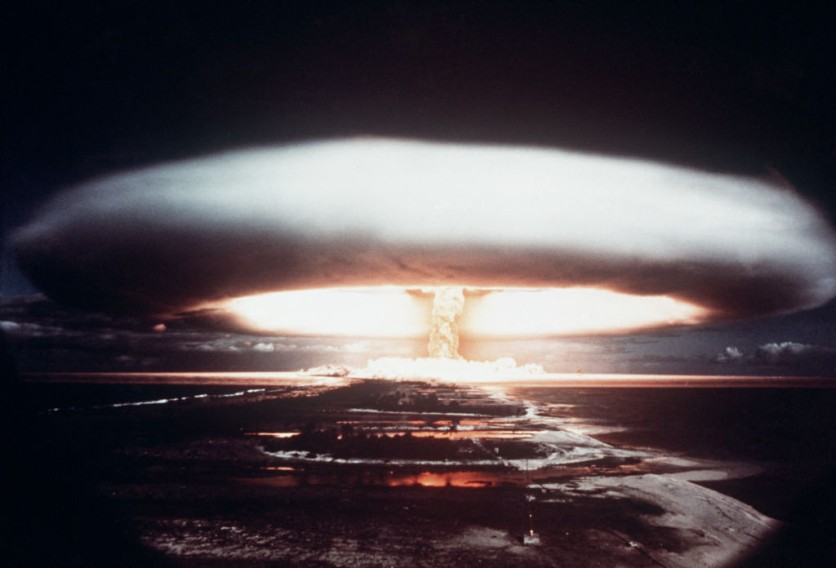More than 100 medical journals worldwide issued a joint call on Thursday to address the "great and growing" threat of nuclear catastrophe by eliminating nuclear weapons.
The call is in response to recent events, including Russia's veiled warnings of using nuclear weapons in Ukraine and North Korea's missile tests, highlighting the increasing risk of nuclear proliferation, AFP reported.

Danger of Nuclear Weapons
In an editorial published across these medical journals, health professionals worldwide are urged to raise awareness among citizens and leaders about the immense danger nuclear weapons pose to public health and the Earth's essential life support systems.
The editorial emphasized that current nuclear arms control and non-proliferation efforts are inadequate in safeguarding the global population against the risk of nuclear war, whether due to design flaws, errors, or miscalculations.
The Treaty on the Non-Proliferation of Nuclear Weapons (NPT) has made slow progress, and the most recent treaty review conference ended without consensus.
The potential consequences of any nuclear conflict are devastating. Even a limited nuclear war involving a small fraction of the world's nuclear weapons could result in millions of immediate casualties and trigger a nuclear famine with two billion people at risk.
The editorial noted that a large-scale conflict between major nuclear powers, such as the US and Russia, could have even more catastrophic consequences, jeopardizing billions of lives and threatening humanity's survival.
The editorial also highlighted the urgency of making the prevention of nuclear weapon use a paramount public health priority and emphasized the need to address the root cause by eliminating nuclear weapons altogether.
Read Also : India's Long-Range Agni-V Nuclear Ballistic Missile Recently Tested Despite Tensions with China
The Health Community's Role
The editorial also emphasized the health community's role in reducing the risk of nuclear war is crucial and has had significant impacts in the past.
In the 1980s, health professionals played a pivotal role in ending the cold war arms race by educating policymakers and the public about the medical consequences of nuclear war.
This effort was recognized when the International Physicians for the Prevention of Nuclear War (IPPNW) received the Nobel peace prize in 1985.
In 2007, the IPPNW launched the International Campaign to Abolish Nuclear Weapons, which later led to the adoption of the Treaty on the Prohibition of Nuclear Weapons in 2017.
The treaty currently has 92 signatories, including 68 member states. The editorial called on health professional associations worldwide to inform their members about the urgent threat to human survival and collaborate with the IPPNW to reduce the risks of nuclear war.
They are urged to support three immediate steps on the part of nuclear-armed states and their allies - adopt a no-first-use policy, remove nuclear weapons from hair-trigger alert, and publicly pledge not to use nuclear weapons in current conflicts.
Furthermore, the health community is encouraged to work towards negotiating a time-bound agreement among nuclear-armed states to eliminate their nuclear weapons, as outlined in the non-proliferation treaty, thereby opening the path for all nations to join the Treaty on the Prohibition of Nuclear Weapons.
"The danger is great and growing. The nuclear armed states must eliminate their nuclear arsenals before they eliminate us," the editorial noted.
"The health community played a decisive part during the cold war and more recently in the development of the Treaty on the Prohibition of Nuclear Weapons. We must take up this challenge again as an urgent priority, working with renewed energy to reduce the risks of nuclear war and to eliminate nuclear weapons," it added.
Related Article : Samsung C&T Invests $70M in Small Nuclear Power Plants

![Apple Watch Series 10 [GPS 42mm]](https://d.techtimes.com/en/full/453899/apple-watch-series-10-gps-42mm.jpg?w=184&h=103&f=9fb3c2ea2db928c663d1d2eadbcb3e52)



